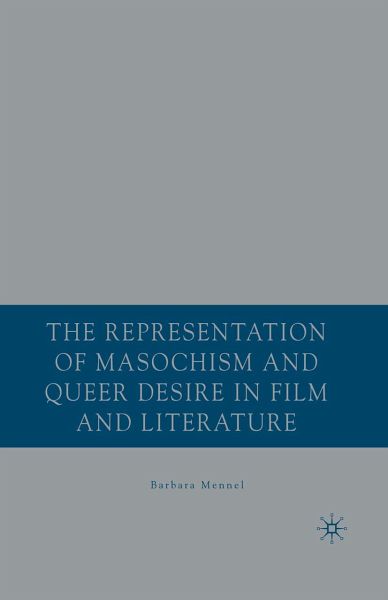
The Representation of Masochism and Queer Desire in Film and Literature (eBook, PDF)
Versandkostenfrei!
Sofort per Download lieferbar
40,95 €
inkl. MwSt.
Weitere Ausgaben:

PAYBACK Punkte
20 °P sammeln!
Defining masochism as 'literary perversion', this book probes the productivity of masochistic aesthetics in the literature of Leopold von Sacher-Masoch and contemporary queer films, analysing radical accounts of desire, gender, and sexuality.
Dieser Download kann aus rechtlichen Gründen nur mit Rechnungsadresse in A, B, BG, CY, CZ, D, DK, EW, E, FIN, F, GR, HR, H, IRL, I, LT, L, LR, M, NL, PL, P, R, S, SLO, SK ausgeliefert werden.












